The Coconut Revolution is a British film of genre Documentary
The Coconut Revolution (2000)
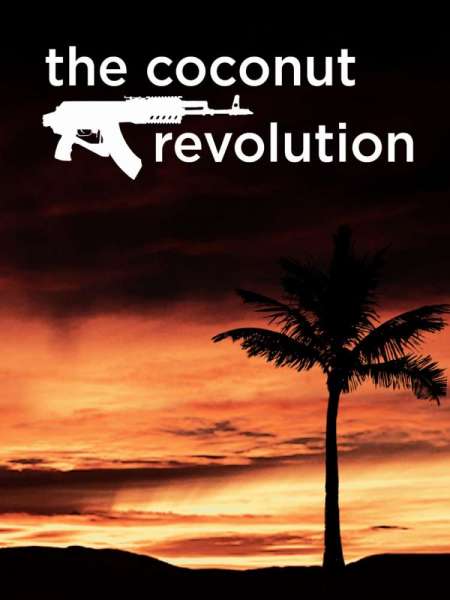
If you like this film, let us know!
Length 50minutes
OriginUnited-kingdom
Genres Documentary
Themes Environmental films, Documentary films about law, Documentary films about war, Documentary films about historical events, Documentaire sur une personnalité, Documentary films about politics, Political films
Rating81%










The Coconut Revolution is a 2001 multi-award winning documentary film about the struggle of the indigenous peoples of Bougainville Island during the Bougainville Civil War. The movement is described as the "world's first successful eco-revolution" and has drawn parallels with the conflict depicted in the 2009 film, Avatar.
Comments
Leave comment :
Suggestions of similar film to The Coconut Revolution
There are 8972 with the same cinematographic genres, 10730 films with the same themes (including 3 films with the same 7 themes than The Coconut Revolution), to have finally 70 suggestions of similar films.If you liked The Coconut Revolution, you will probably like those similar films :
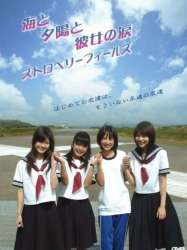
Strawberry Fields (2006)
, 1hOrigin Israel
Genres Drama, Documentary, Fantasy
Themes Films set in Africa, Environmental films, Films about religion, Documentary films about business, Documentary films about law, Documentary films about environmental issues, Documentary films about war, Documentary films about historical events, Documentaire sur une personnalité, Documentary films about politics, Documentary films about religion, Political films, Films about Jews and Judaism
Actors Mitsuki Tanimura, Yuria Haga
Rating64%





Strawberry Fields points out that strawberries grown in Gaza are the only agricultural product marketed internationally as being of Palestinian origin. One of the major Gaza strawberry farms in located at Beit Lahiya. More than 1,500 tons of strawberries are exported from Gaza to Europe through the Israeli company Agrexco. In order to get overseas, however, the fruits need to pass through the checkpoint that separates Israel and Gaza. The 2005–2006 growing season coincided with the Israel's disengagement from Gaza and the rise of Hamas as the ruling political entity. The armed conflict between Israel and Hamas resulted in the closing of the border checkpoint. The strawberries grown at Beit Lahiya cannot leave Gaza, resulting in significant losses for the farmers and their Agrexco partners. Unable to transport their produce, the farmers have no choice but to dispose of their crop and prepare for the following year’s growing season.
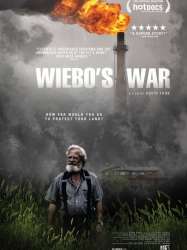
Wiebo's War (2012)
, 1h33Origin Canada
Genres Documentary
Themes Environmental films, Films about families, Films about religion, Films about terrorism, Documentary films about law, Documentary films about environmental issues, Documentary films about war, Documentary films about historical events, Documentaire sur une personnalité, Documentary films about politics, Documentary films about religion, Documentary films about technology, Documentary films about terrorism, Political films
Rating72%





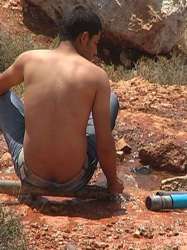
Interrupted Streams (2010)
, 1h15Origin Israel
Genres Documentary
Themes Films set in Africa, Environmental films, Films about religion, Documentary films about law, Documentary films about environmental issues, Documentary films about war, Documentary films about historical events, Documentaire sur une personnalité, Documentary films about politics, Documentary films about religion, Political films, Films about Jews and Judaism
Paths of lives are crossed in one village in the West Bank. Along the broken water pipelines, villagers walk on their courses towards an indefinite future. Israel that controls the water, supplies only a small amount of water, and when the water streams are not certain nothing can evolve. The control over the water pressure not only dominates every aspect of life but also dominates the spirit. Bil-in, without spring water, is one of the first villages of the West Bank where a modern water infrastructure was set up. Many villagers took it as a sign of progress, others as a source of bitterness. The pipe-water was used to influence the people so they would co-operate with Israel’s intelligence. The rip tore down the village. Returning to the ancient technique of collecting rainwater-using pits could be the villagers’ way to express independence but the relations between people will doubtfully be healed.
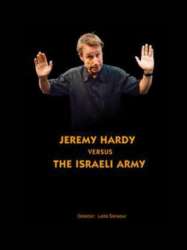 , 1h15
, 1h15Genres Documentary
Themes Films set in Africa, Films about religion, Documentary films about law, Documentary films about war, Documentary films about historical events, Documentaire sur une personnalité, Documentary films about politics, Documentary films about religion, Political films, Films about Jews and Judaism
Actors Nicholas Blincoe
Rating69%






Umurage (2002)
, 52minutesOrigin Espagne
Genres Documentary
Themes Films set in Africa, Films about racism, Documentary films about racism, Documentary films about law, Documentary films about war, Documentary films about historical events, Documentaire sur une personnalité, Documentary films about politics, Political films
In Rwanda, a hundred members of the Ukuri Kuganze Association, made up in its majority by survivors of the genocide, and a few of their executioners, freed after having confessed and asked for forgiveness in 2003, meet at a reinsertion center. These executioners are going home, in most cases to the same places where they carried out their crimes, and will have to "face" their victims and ask their forgiveness. In 1994, over a space of just one hundred days, almost a million people were murdered, that makes 10,000 dead per day.
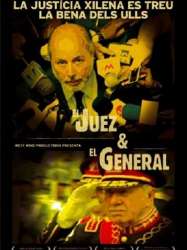
The Judge and the General (2008)
Genres Documentary
Themes Documentary films about law, Documentary films about war, Documentary films about historical events, Documentaire sur une personnalité, Documentary films about politics, Political films
Rating75%





The Judge and the General tells a story of personal transformation, as a Chilean judge descends into what he calls the "abyss" of investigating crimes committed by Augusto Pinochet's dictatorship during the 1970s and 1980s in Chile.
 , 1h4
, 1h4Genres Documentary
Themes Films about racism, Films about terrorism, Documentary films about racism, Documentary films about law, Documentary films about war, Documentary films about historical events, Documentaire sur une personnalité, Documentary films about politics, Documentary films about terrorism, Political films

Terror's Advocate (2007)
, 2h15Directed by Barbet Schroeder
Origin France
Genres Documentary
Themes Films about terrorism, Documentary films about law, Documentary films about war, Documentary films about historical events, Documentaire sur une personnalité, Documentary films about politics, Documentary films about terrorism, Political films
Actors Barbet Schroeder
Rating70%





Jacques Vergès est né « colonisé » (selon ses propres termes) en 1925 à Ubone au Siam, dans l'actuelle Thaïlande(ou en 1924). Sa mère est vietnamienne et son père est réunionnais, consul de France au Siam au moment de sa naissance.
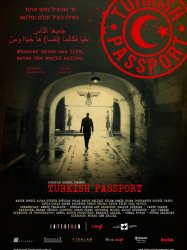
Turkish Passport (2011)
, 1h31Genres Drama, Documentary, Historical
Themes Films about racism, Films about religion, Documentary films about racism, Documentary films about law, Documentary films about war, Documentary films about historical events, Documentaire sur une personnalité, Documentary films about politics, Documentary films about religion, Political films, Films about Jews and Judaism, Documentary films about World War II
Rating79%





Turkish Passport tells the story of diplomats posted to Turkish embassies and consulates in several European countries, who saved numerous Jews during the Second World War. Whether they pulled them out of Nazi concentration camps or took them off the trains that were taking them to the camps, the diplomats, in the end, ensured that the Jews who were Turkish citizens could return to Turkey and thus be saved. Based on the testimonies of witnesses who traveled to Istanbul to find safety, Turkish Passport also uses written historical documents and archive footage to tell this story of rescue and bring to light the events of the time. The diplomats saved not only the lives of Turkish Jews, but also rescued foreign Jews condemned to a certain death by giving them Turkish passports. In this dark period of history, their actions lit the candle of hope and allowed these people to travel to Turkey, where they found light. Through interviews conducted with surviving Jews who had boarded the trains traveling from France to Turkey, and talks with the diplomats and their families who saved their lives, the film demonstrates that "as long as good people are ready to act, evil cannot overcome".
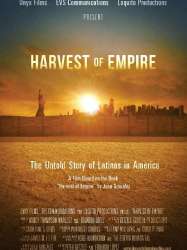
Harvest of Empire (2012)
, 1h30Origin USA
Genres Documentary
Themes Films about terrorism, Documentary films about law, Documentary films about war, Documentary films about historical events, Documentaire sur une personnalité, Documentary films about politics, Documentary films about terrorism, Political films
Rating75%





 Connection
Connection